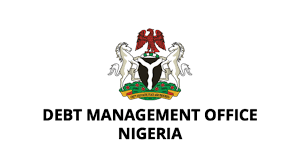Nigeria’s Debt Servicing Costs Soar Amidst Rising Borrowing and Fiscal Pressures
Nigeria’s debt servicing costs reached a staggering N13.12 trillion in 2024, a 68% surge from the N7.8 trillion recorded in 2023. This figure exceeded the budgeted allocation of N12.3 trillion, underscoring the mounting pressure of debt obligations on the nation’s fiscal sustainability. The surge is primarily attributed to rising borrowing costs, both domestically and internationally, coupled with the naira’s depreciation, making dollar-denominated debt more expensive to service. This alarming trend necessitates a proactive and strategic approach to debt management and revenue mobilization to ensure long-term fiscal stability. The government projects an even higher debt servicing cost of N16 trillion for the 2025 budget, further highlighting the continued challenges in managing the nation’s debt burden.
Breakdown of Domestic and External Debt Servicing
The domestic debt service component reached N5.97 trillion in 2024, a 14.15% increase from the previous year. This rise is largely due to increased domestic borrowing and higher interest rates. Federal Government Bonds constituted the bulk of domestic debt service, accounting for N4.69 trillion, or 78.59% of the total. Nigeria Treasury Bills also contributed significantly, with a sharp 129% increase in interest payments. Other instruments like Federal Government Savings Bonds, FGN SUKUK Bonds, and FGN Green Bonds also contributed to the domestic debt service burden. On the external front, Nigeria spent $4.66 billion (N7.15 trillion), a dramatic 167% increase from 2023. This surge is linked to escalating global interest rates and the naira’s devaluation against the dollar. The analysis reveals that despite the significant increase in external debt servicing, domestic debt continues to represent a substantial portion of Nigeria’s overall debt servicing expenditure.
External Debt Servicing Breakdown and Subnational Debt Profile
Commercial creditors, particularly Eurobond holders, received the largest share of external debt servicing payments, totaling $1.47 billion. Multilateral creditors, led by the International Monetary Fund ($1.63 billion) and the World Bank’s International Development Association ($663.23 million), received $2.62 billion. Bilateral creditors, including the Exim Bank of China, were paid $570.67 million. The analysis indicates a substantial year-on-year increase in payments to multilateral creditors (112.4%), while commercial debt service rose by 23.7%, and bilateral debt service remained relatively stable. Subnational external debt, encompassing the 36 states and the Federal Capital Territory, decreased slightly to $4.80 billion, reflecting efforts to manage external debt obligations amidst global economic uncertainties. Lagos State remained the highest subnational debtor, followed by Kaduna and Edo states, while Jigawa and Yobe states had the lowest external debt burdens.
Government’s Assurance on Reduced Borrowing and Fiscal Reforms
Despite the rising debt servicing costs, Vice President Kashim Shettima assured Nigerians that the Federal Government is borrowing less than before. He emphasized the government’s commitment to restructuring its borrowing strategy to reduce the debt burden and move away from low-value, unproductive borrowings. Shettima highlighted the N13 trillion budget deficit in the N55 trillion 2025 national budget, representing 23.6%, the lowest in years, as a sign of progress. He stressed the administration’s focus on exploring alternative financing options like public-private partnerships and organic revenue generation to gradually reduce reliance on borrowing. Shettima acknowledged the necessity of borrowing for critical infrastructure but emphasized the government’s determination to direct borrowed funds towards productive ventures and implement reforms to curb waste and improve efficiency.
States’ Fiscal Responsibility and Optimism for Future Economic Performance
Shettima also noted that the Tinubu administration’s reforms have encouraged states to adopt more prudent fiscal policies, with many states choosing not to borrow for their 2025 budgets. He pointed to the fact that over 15 states have doubled their budgets year on year from 2024 to 2025 as evidence of improved fiscal management at the subnational level. He expressed optimism that the government’s current economic trajectory would lead to improved macroeconomic indicators in the coming years, including lower poverty rates, a strengthened industrial sector, reduced inflation, and robust economic growth. Despite the significant debt servicing challenges, the government remains committed to prudent fiscal management, emphasizing the importance of reducing leakages and wastages in the budget and fostering continuous dialogue among stakeholders to optimize resource allocation and achieve national development goals.
Expert Calls for Enhanced Revenue Mobilization and Strategic Debt Management
Given the substantial portion of the national budget consumed by debt servicing, experts advocate for a more assertive approach to revenue mobilization and strategic debt management to mitigate the fiscal risks associated with rising debt obligations. They emphasize the importance of diversifying revenue streams, improving tax collection efficiency, and prioritizing expenditure on growth-enhancing investments. Furthermore, experts recommend exploring innovative debt management strategies, including renegotiating loan terms, refinancing high-cost debt, and actively seeking concessional financing to alleviate the debt burden and create fiscal space for critical development initiatives. This concerted effort towards fiscal consolidation and sustainable debt management is crucial for ensuring long-term economic stability and achieving Nigeria’s development aspirations.


